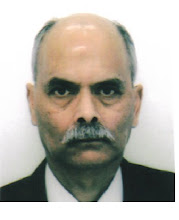Thursday, 14 July 2016
Old People
That I am now quite an old man, is no longer in contention. The mere fact that many men and women that I meet in the street address me as “Sir” is ample evidence that I am perceived as person of pitiable old age. But it never ceases to amaze me how so many youngsters routinely associate appearance of old age with some by-gone era that predates even the oldest living person of to-day: they may quite easily, for instance, associate a man of seventy with the trenches of the First World War, as has happened in my case. I recently visited my optician for a routine eye test. On arrival, I was greeted by a very pleasant young receptionist who asked me if I had visited the optician before, in which case, she informed me, she could easily find all my details on the optician’s computer system. On my assuring her that I was indeed an old client of the optician’s returning for a check-up, she asked me for my name and date of birth. With some, entirely irrational, trepidation I provided her with the required information: my forename, surname and my date of birth, which was of course, 22-2-1940. A flurry of finger tapping followed, to the accompaniment of echoing clicks from the ubiquitous computer keyboard that now adorns all shops and businesses. When the clicking ended, there was an ominous silence which I apprehended boded some inexplicable problem for which I might be held accountable. My foreboding was justified: my record, contrary to the receptionist’s expectations, seemed not to exist on the Optician’s computer system. And as I had feared, this eventuality only seemed to suggest to the receptionist that the information I had provided could not have been accurate; that she might have made an error in transcribing it into the computer, was a possibility that she was not about to entertain. Youth in its innocence tends to be oblivious to its own fallibility. Be that as it may, it was with the utmost courtesy that she asked me to repeat the details of my name and date of birth. More bemused than irritated, I re-stated my full name, followed by my date of birth. As I intoned my year of birth, 1940, I detected a faint smile on the receptionist’s face which left me in no doubt that she had just solved the mystery of my missing computer record. Curious to know how a computer record that had eluded the receptionist only moments ago, could now be about to make its appearance, I waited eagerly to hear what the explanation might have been. Alas when the explanation came, it scarcely served to flatter my ego. Showing scant recognition of any faux-pas that she might have committed, she said “Ah nineteen forty, - I thought you said nineteen fourteen!”. Unflattering as the assumption behind her remark was, it caused me more mirth than outrage. Mental arithmetic was clearly not her forte, or else she might have realised that even with my age-worn face, I was an unlikely centenarian. More to my disappointment however, what her unabashed explanation really revealed, was the inability of the young to comprehend the world of old age. To the still youthful, the aged live in a world in which there are no age differences: it is, in their perception, a world in which all the different generations of the elderly, however many decades apart, somehow coalesce into a single blob of longevity called “the old people”.
Subscribe to:
Post Comments (Atom)

No comments:
Post a Comment